
The Life Cycle of a Flowering Plant Year 3 Teaching Resources
The life cycle of all plants is complex because it is characterized by alternation of generations. Plants alternate between diploid sporophyte and haploid gametophyte generations, and between sexual and asexual reproduction. The ability to reproduce both sexually and asexually gives plants the flexibility to adapt to changing environments.

Diagram showing life cycle of sunflower Royalty Free Vector
Flowering plants each have unique variations in the ways they grow, bloom, and reproduce. The best way to learn about the life cycle of flowering plants is to observe it in person. Watch for the different stages of the life cycle in your garden or in common weeds and observe the differences you see. Try recording what you observe in a journal.
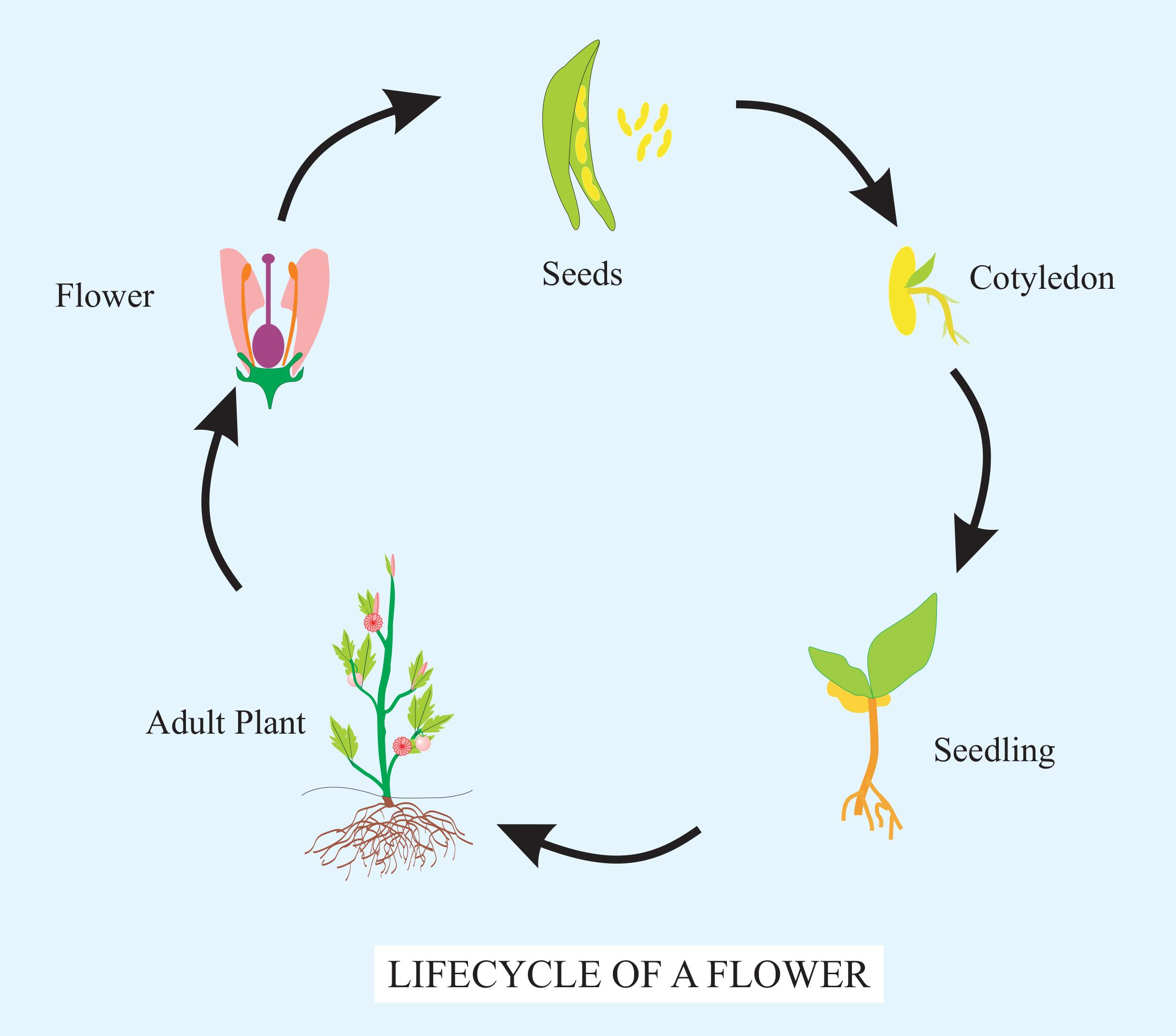
Draw the life cycle of the flowering plant. How are cotyledons useful
Join Ms Tree as she walks down memory lane through the stages of the plant cycle, to see how she transformed from a seed to a beautiful plant that bears frui.

9+ life cycle of flowering plants task 1 RosieKaydan
The life of plants - Class 11 | Science | Khan Academy The life of plants - Class 11 4 units · 17 skills Unit 1 Morphology of flowering plants Unit 2 Transport in plants Unit 3 Plant growth and development Unit 4 Sexual reproduction in flowering plants Course challenge Test your knowledge of the skills in this course. Start Course challenge Science

Life Cycle of a Flowering Plant Chart Australian Teaching Aids
b | Typical flowering plant life cycle (maize), in which meiosis, followed by mitotic divisions, produces two types of haploid organism that are genetically active — the female megagametophyte.
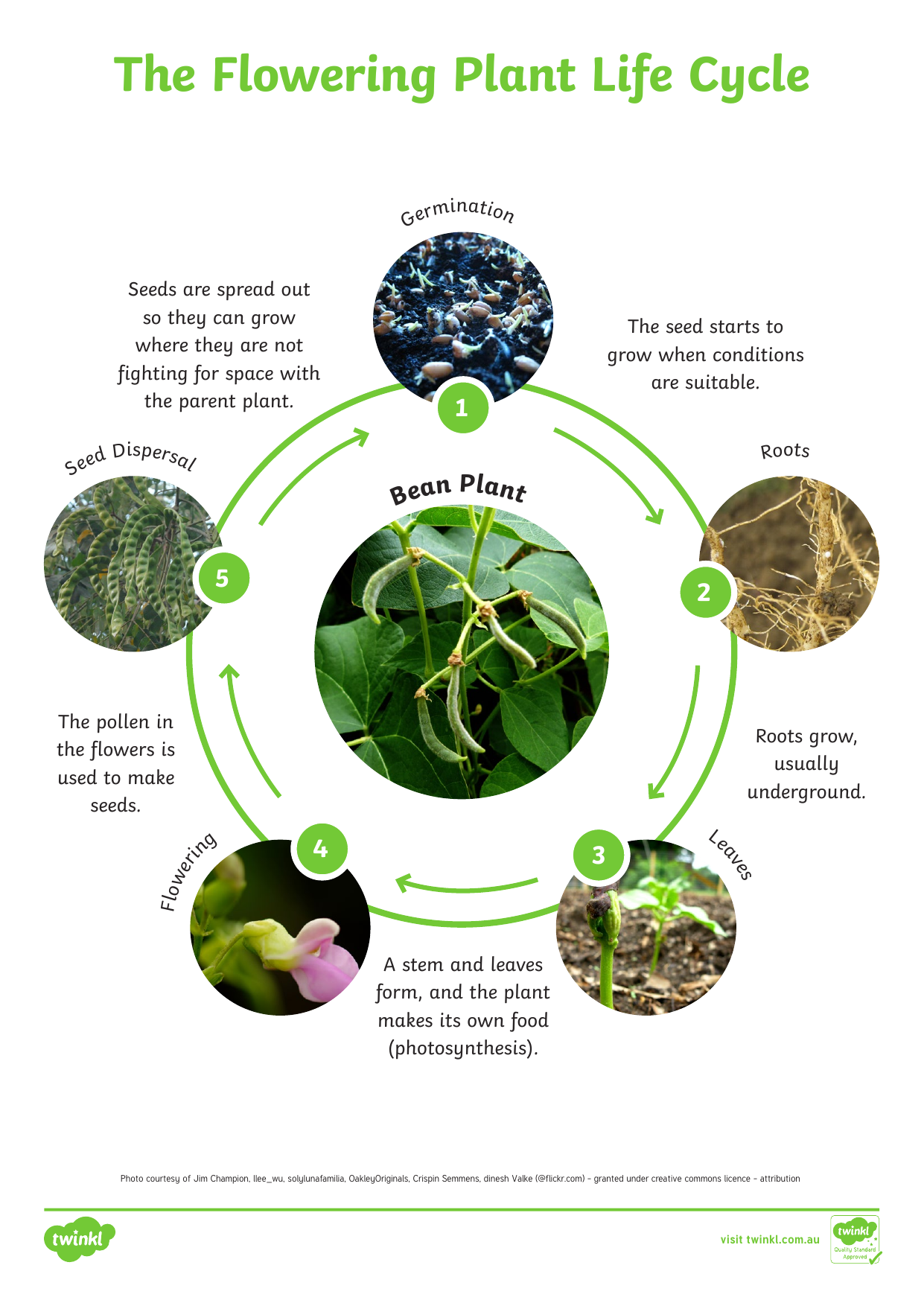
9+ life cycle of flowering plants task 1 RosieKaydan
Flowering plants are plants that bear flowers and fruits,. Angiosperm flower showing reproductive parts and life cycle. The characteristic feature of angiosperms is the flower. Its function is to ensure fertilization of the ovule and development of fruit containing seeds.
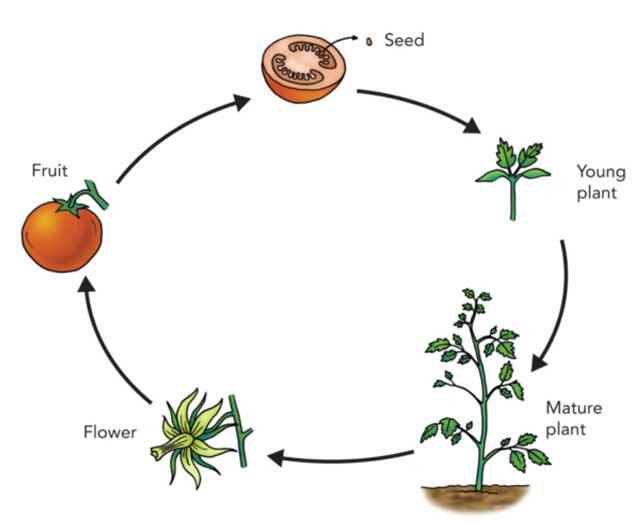
Life Cycle of Plants (Information + Fun Facts) Science4Fun
The life cycle of a flowering plant begins with the germination of a seed, followed by vegetative and reproductive growth, followed by pollination, followed by seed spreading. What is the.
.png)
Flowering Plants Have A Life Cycle All About Cwe3
The Life Cycle Of A Flower: Quick Version The Life Cycle Of A Flower Plant Vs Animal Life Cycle Alternation Of Generations Flower Reproduction Pollen Are Flowers Male Or Female? The Male Parts Of A Flower The Female Parts Of A Flower Pollinators Self-Pollination Vs Cross-Pollination Animal Pollination Nectar How Flowers Attract Pollinators

Schematic representation of the life cycle of a flowering plant. The
A significant step in the life cycle of flowering plants. But fertilization must occur in the life cycles of all plants, not just those with flowers. Does it always use the birds or the bees?. A general plant life cycle is represented by the diagram in Figure below. From the figure, you can see that the diploid sporophyte has a structure.
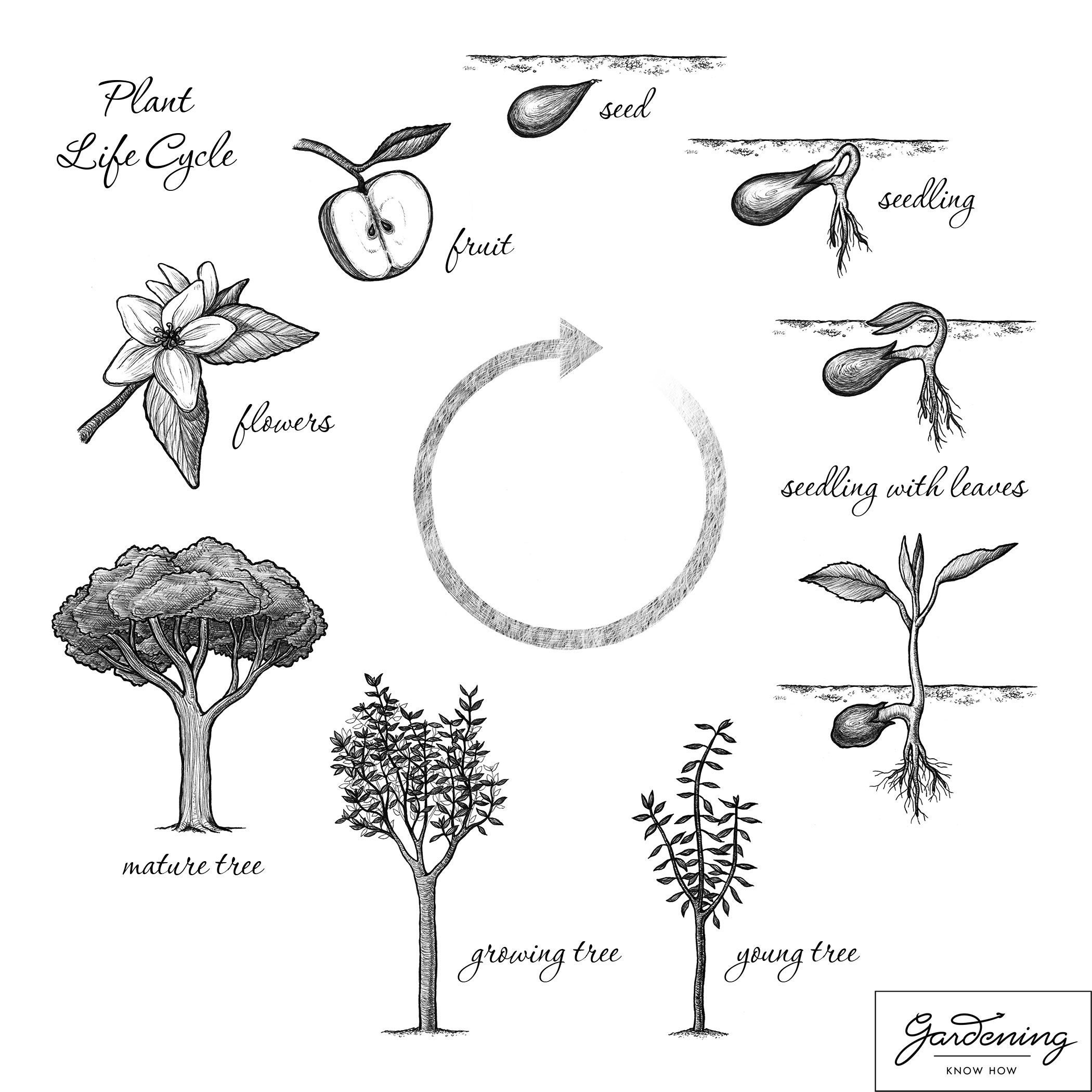
Basic Plant Life Cycle And The Life Cycle Of A Flowering Plant
A basic plant life cycle goes through five stages: 1) seed, 2) seed germination, 3) seedling, 4) adult plant, and 5) pollination and fertilization. They are discussed below in detail. 1) Seed The life cycle of a flowering plant begins with a seed. It has a protective outer covering called the shell.

Life Cycle Poster Plant
The life cycles of gymnosperms (conifers) and angiosperms (flowering plants) are dominated by the sporophyte stage (the plant structure that you see is the sporophyte), with the gametophyte remaining attached to and dependent on the sporophyte (reverse of bryophytes). This is a sporophyte-dominated life cycle.
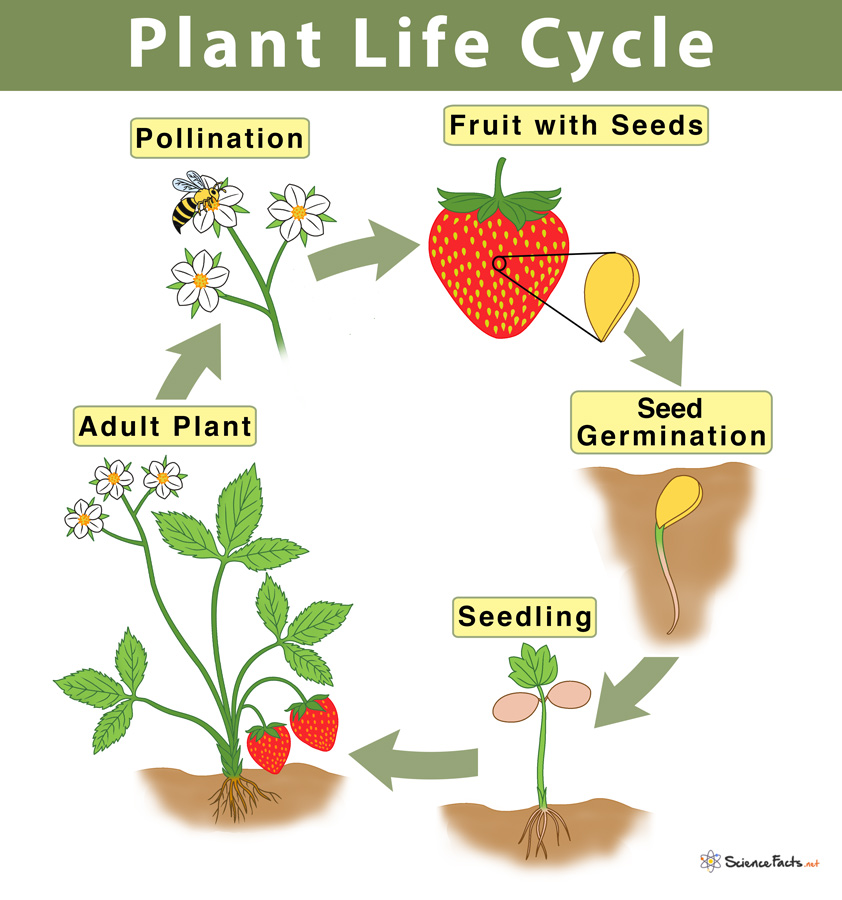
Plant Life Cycle Study Guide Inspirit
The life cycle of a plant with flowers generally follows five key stages. These are germination, growth, flowering, seed formation and seed dispersal. However, not all plants grow flowers, and non-flowering plants will spread seeds or spores in order to create more plants. Download FREE teacher-made resources covering 'Flowering Plant Life Cycle'
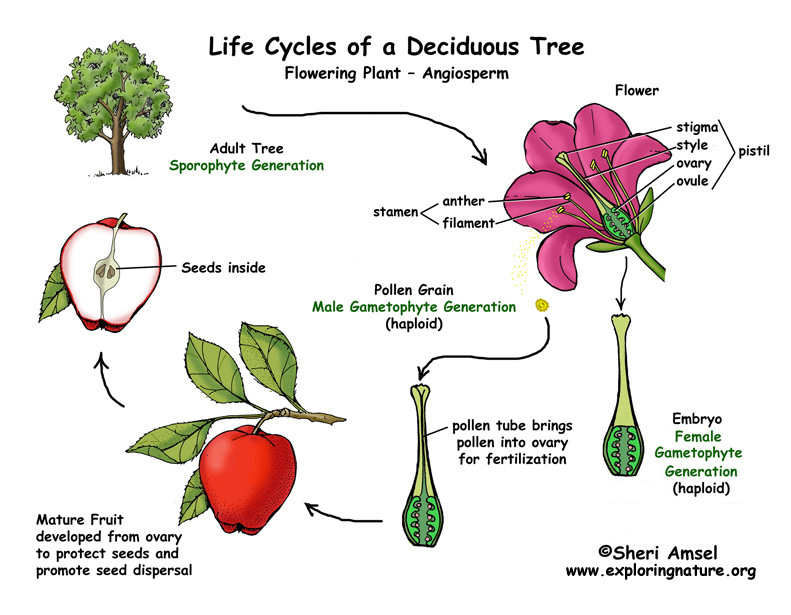
Apple Tree Life Cycle (Flowering Plant)
Share it! The life cycle of a flowering plant starts with a seed. The seed germinates to produce a sapling, which matures into a plant. This plant then reproduces to form new seeds which then begin the next life cycle The following article elaborates on the life cycle of a flowering plant.

Flowering Plants Have A Life Cycle All About Cwe3
A life cycle shows how living things grow, change and reproduce themselves. Many plant life cycles include seeds. This article describes the life cycle of flowering plants. Flowering plants grow from seeds Flowering plants produce seeds that are then dispersed from their parent.

Life Cycle Of A Flower Apple For The Teacher Ltd
Jared shows us the parts of a flower and describes a life cycle. He shows us that flowers need to make seeds to make more flowers.Visit our channel for over.
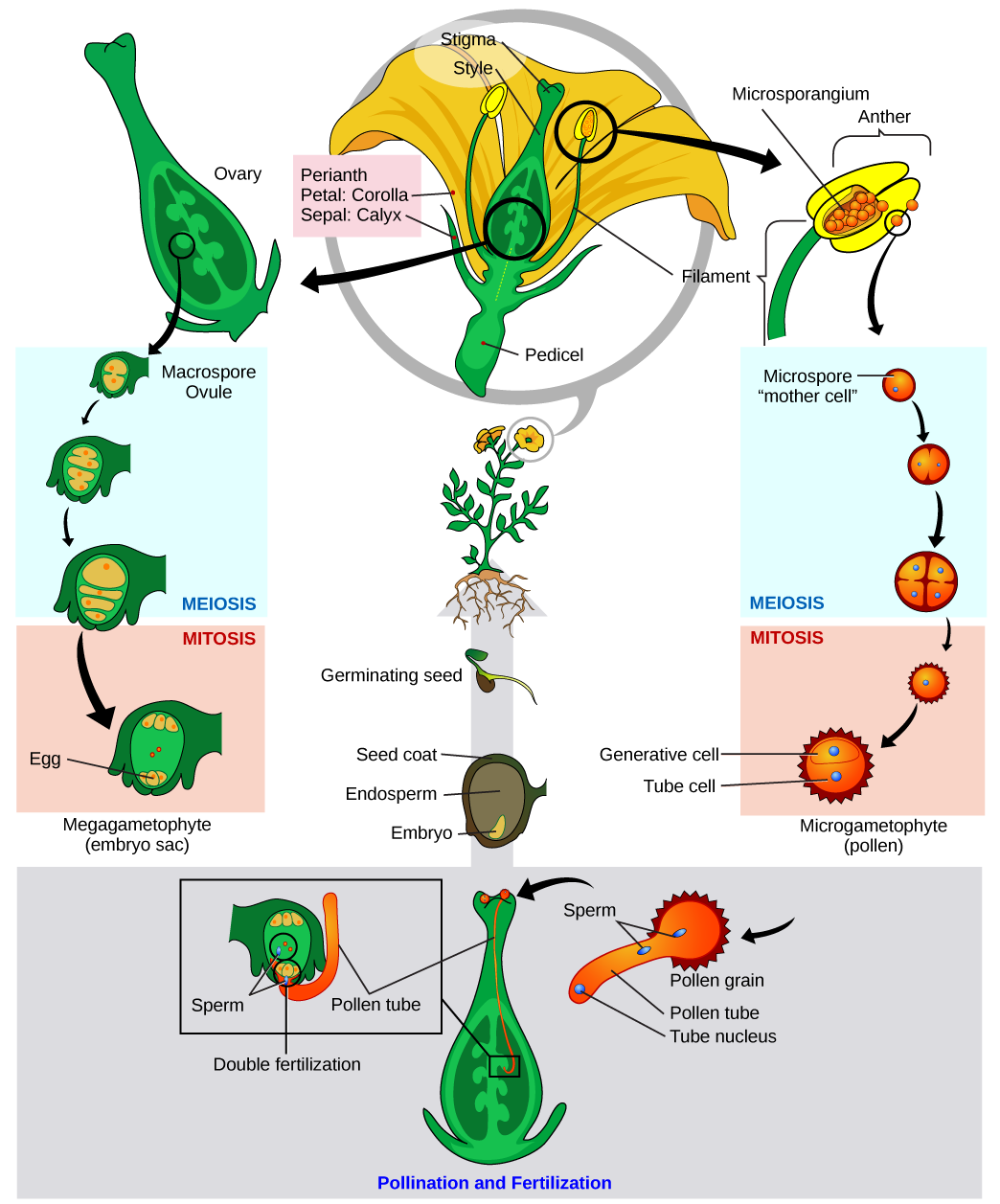
Plant life cycles and taxonomy It's a natural universe
Stamen: the male part of the plant Anther: produces grains of pollen Filament: supports the anther Pistil: the female part of the plant, sometimes called the 'carpel' Stigma: collects pollen grains Style: allows pollen to pass to the ovary Ovary: produces seeds inside tiny 'ovules'